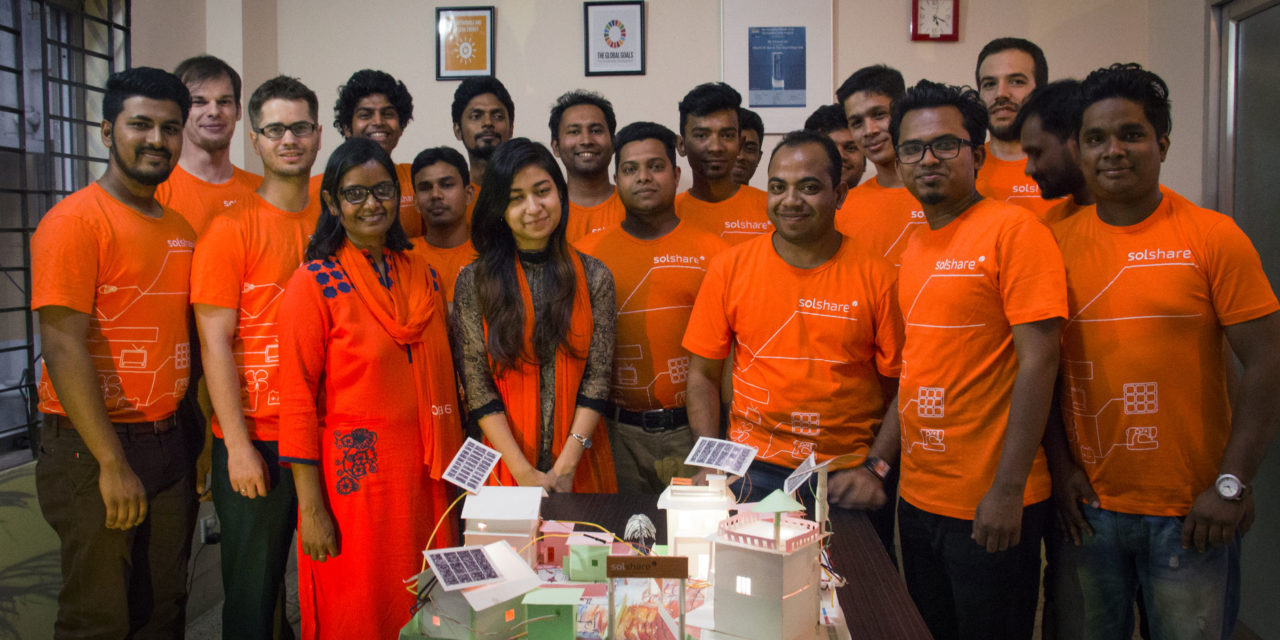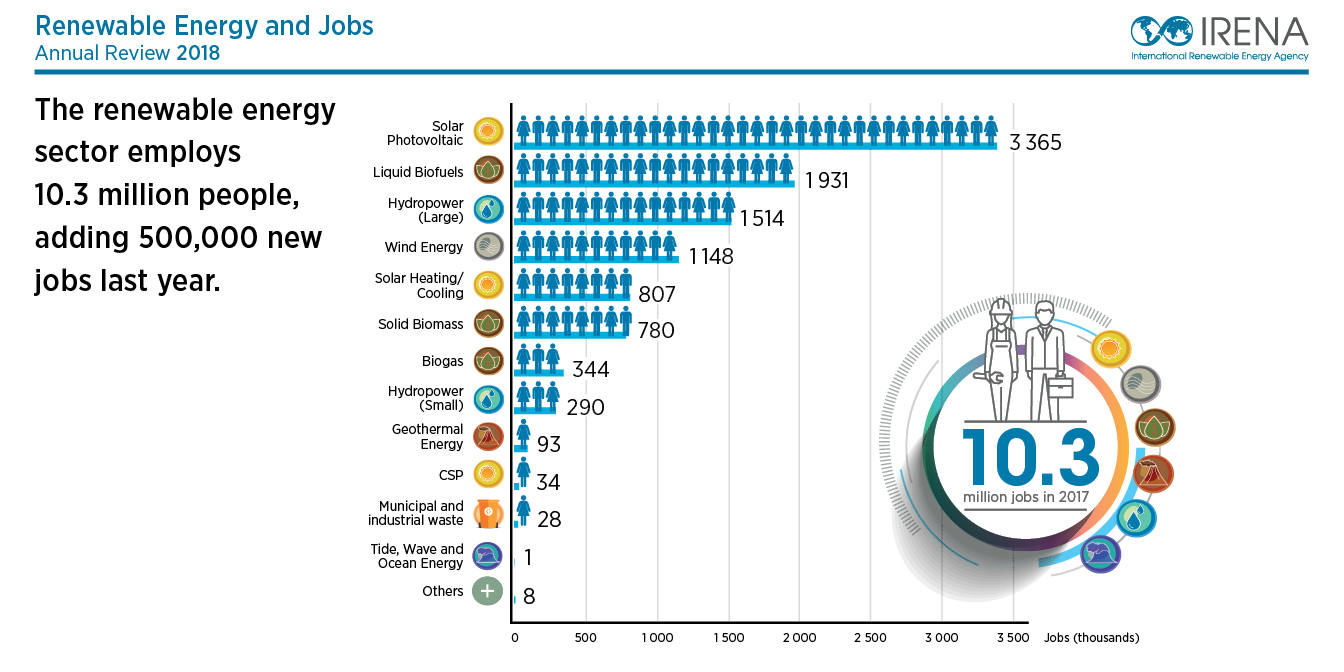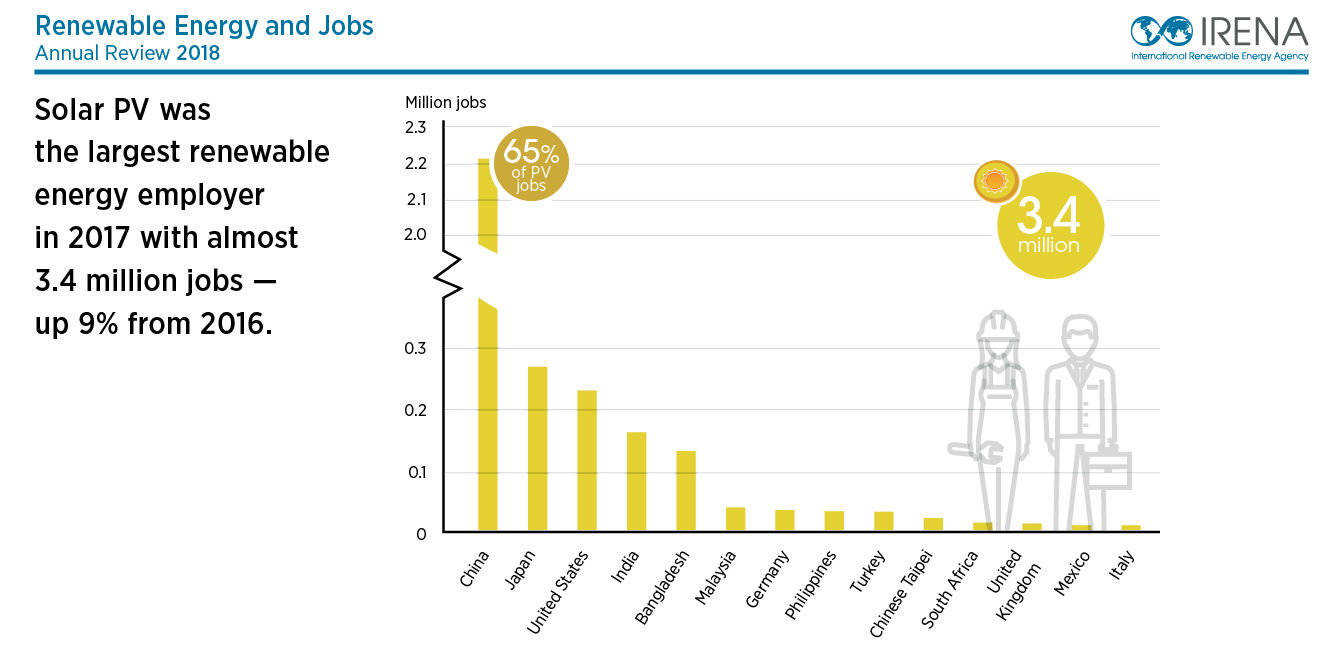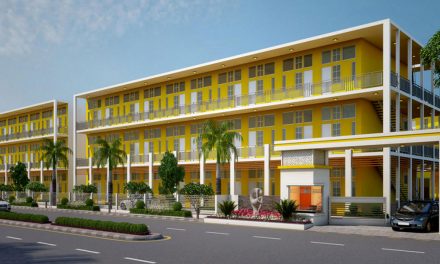According to annual review published by International Renewable Energy Agency (IRENA), the total number of people employed in renewable energy industry now stands at 10.3 million globally, creating more than 500,000 new jobs in 2017.
Among all, solar energy is the most sustainable and affordable to the household, and that’s why solar PV industry remains the largest employer of all renewable energy technologies, accounting for 9% increase and approximately 3.4 million jobs in 2017. The growth in Asia is significant as we observed that China(#1) was estimated to account for 65% of PV jobs (i.e. 2.2 million) , followed by Japan(#2), India(#4) and Bangladesh(#5).
SOLshare – Create a network. Share electricity. Brighten the future in Bangladesh
As a social enterprise founded in Dhaka, Bangladesh in 2014, SOLshare has created a solar energy trading platform via an off-grid product called SOLbox to everyone in Bangladesh. It also pioneers a micro-energy transition model 3.0 by interconnecting solar home systems in peer-to-peer networks, monetizing excess solar energy along the value chain in real time with mobile money and empowering communities to earn a direct income from the sun. German Ambassador to Bangladesh Dr Thomas Prinz praised the model of SOLshare and said, “This is the future. If households in villages can use renewable energy for harvest and other work, it could decrease the use of power and consumption of resources such as gas.”.
SOLshare won in the UN DESA Powering The Future We Want Award 2017 with the grant money to further establish a minimum of 100 smart grids, for use by over 15,000 beneficiaries. They are also looking for scale-up capital to leverage the electricity sharing grid infrastructure to power electric rickshaws, run solar water pumps, energy efficient fridges and other appliances.
Graduated from Standford University School of Business, one of the founders and Managing Director of SOLshare Sebastian Groh wishes to provide sustainable, affordable energy access in low income rural area of Bangladesh. This decentralised microgrids can deliver solar power to households and businesses, and most importantly, enable them to trade their (excess) electricity for profit with their ICT back-end (SOLweb and SOLapp) facilitates.
Source of Information: IRENA












